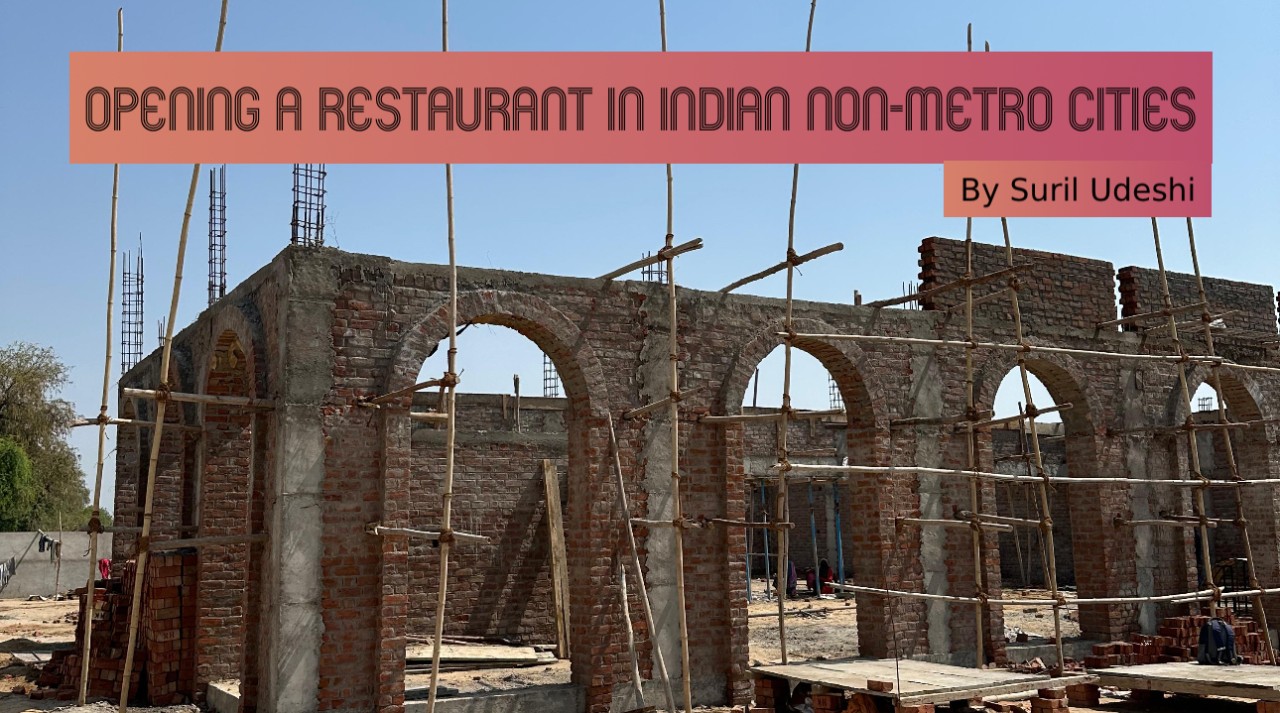In his latest article, Suril Udeshi, a seasoned Restaurant Consultant hailing from Gujarat, delves into the feasibility of establishing restaurants in small towns and non-metro areas. With shifting demographics and evolving guest preferences, the landscape of the restaurant industry is undergoing significant transformations, presenting both opportunities and challenges for aspiring restaurateurs.
Pros:
- Low Real Estate Costs: Compared to metropolitan cities, small towns and non-metro areas typically offer lower real estate costs, enabling entrepreneurs to establish their ventures at a fraction of the cost.
- Minimal Competition: Lack of modern restaurant establishments, these regions translate to minimal competition, allowing new entrants to carve out a niche and establish a strong foothold in the market.
- Emerging Urban Class: Non-metro areas and tier two cities are witnessing the emergence of an urban middle class with disposal income, eager to explore modern cuisines and dining experiences.
- Demand for Modern Cuisines: There is a growing demand for contemporary and international cuisines, catering to evolving consumer tastes and preferences. Even the popular North Indian cuisine has a demand here as few restaurants cater authentic taste.
- Rise in Social Functions: The increasing prevalence of pompous social functions such as weddings, reception and pre-wedding celebrations in these areas presents lucrative opportunities for catering services and banquet facilities.
- Economic Upsurge: The economic prosperity of residents in non-metro areas and tier two cities has led to higher spending capacities, driving demand for dining out experiences.
- Low Operating Costs: Reduced operating expenses, including rentals, utilities, and municipal levies, contribute to lower overheads and facilitate quicker breakeven periods for restaurants.
- Untapped Markets: Many non-metro areas lack quality dine-out options, presenting untapped markets ripe for exploration and expansion.
- Supportive Infrastructure: The presence of door-to-door delivery aggregators and increasing interest from retail businesses further bolsters the infrastructure for restaurant operations in these regions.
Cons:
- Skilled Manpower: Recruiting skilled personnel for restaurant operations can be challenging in non-metro areas, where the pool of experienced professionals may be limited.
- Inexperienced Local Vendors: Local vendors and service providers may lack the expertise and reliability compared to their counterparts in metropolitan areas, posing procurement challenges.
- Logistical Hurdles: Procuring raw materials, especially imported and typical ingredients, may pose logistical challenges and incur additional costs due to limited supply chains.
- Low Population Density: The relatively lower population density in small towns and non-metro areas may limit the potential customer base, impacting revenue streams.
- Price Sensitivity: Consumers in these regions may be more price-sensitive, necessitating careful pricing strategies to maintain profitability without compromising quality.
Despite these challenges, with meticulous planning and strategic execution, the cons can be effectively managed to capitalize on the myriad opportunities presented by small town and non-metro markets. Suril Udeshi emphasizes the importance of selecting strategic locations with high density of population and ensuring uncompromising standards in food quality, service, and ambiance.
By leveraging the expertise of restaurant consultants, entrepreneurs can navigate the complexities of the industry and establish successful ventures that resonate with the local populace while equalling metropolitan dining experiences.
Suril Udeshi is currently consulting elite restaurants of Ahmedabad, Gandhinagar, Rajkot & Bhavnagar. His upcoming projects are in non-metro and small towns of Mehesana, Palanpur and Rajkot and he looks forward for their fast and successful execution.




 By
By



